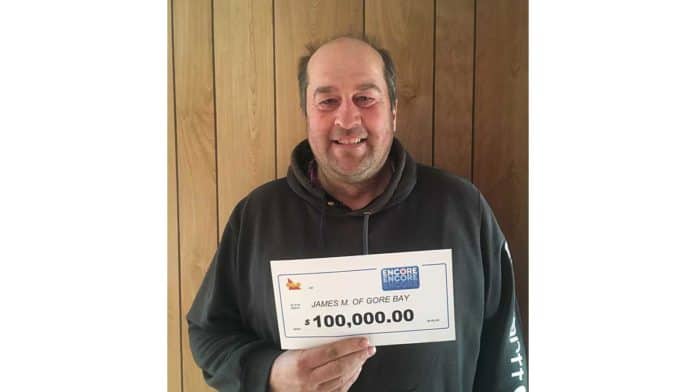Board of Education secures funding to support students and their families
WIIKWEMKOONG – Students in Wiikwemkoong will soon benefit from Wiikwemkoong Board of Education (WBE)’s new Mino Bimaadiziwin (living the good way of life) program, which it is advancing through a nearly $4 million investment from Public Safety Canada’s Crime Prevention Action Fund.
“(This program) will keep the students focused on positive things and keep them engaged with coming to school, but will also keep us connected to them 12 months a year instead of just 10,” said WBE education director Mick Staruck.
WBE’s Mino Bimaadiziwin program involves several initiatives to support students both in school and outside of instructional hours. These include youth group workshops during the school year, before and after school programs at Pontiac School, bringing in elders-in-residence at schools on a daily basis, counsellors and mental health workers, implementing cultural learning—especially Anishinaabemowin and land-based learning—and hiring mental health workers for all three schools for case management, which includes case workers to visit homes and parents to strengthen the parent-school relationship.
This grant will also support workshops throughout the year on topics such as family support and traditional cultures.
The funding of $3,966,833 comes from the National Crime Prevention Centre within Public Safety Canada, with a goal of reducing the risks of young people getting involved in criminal activity and having better, healthier outcomes in life.
“The project is based on preventative approaches so our kids stay on the good path; that’s what the investment is. From any community, when a young person gets involved in the legal system, it’s not good for them and it’s expensive too. These are preventative measures so they don’t get involved in that system,” Mr. Staruck said.
While the holistic approach offered through this program will help many achieve those goals through wraparound supports in all aspects of community life, the program also includes components on anti-gang information, violence and drug awareness workshops and bullying prevention, among others.
Mr. Staruck described the broad approach as culturally adaptive interventions to help meet students’ needs of identity, purpose, independence and spirituality. It aims to make students feel appreciated, accepted and loved within their community and learn about their Anishinaabe heritage, to build on strengths and celebrate their successes, to set goals for personal growth and work toward them, and to acknowledge the Creator and live the good way of life (bimaadiziwin) in every part of their lives.
Mino Bimaadiziwin will run year-round, meaning there will be opportunities for summer day camps focused on Anishinaabemowin, leadership and peer skills. Mr. Staruck said he is working with community partners including the youth centre to develop opportunities for that purpose.
WBE has been working toward this program for more than two years, a process begun with former education director Fay Zoccole, who sought ways for youth to grow communication, social, problem-solving and resiliency skills. Mino Bimaadiziwin’s grant is spread over a five-year time horizon through the 2025-2026 fiscal year.
The school board will soon hire a project manager for this undertaking, who will report to the systems principal to ensure a direct connection to the board’s three schools.
That individual will build a team of five people to run and develop the core services during Mino Bimaadiziwin’s first year. In following years there will be a permanent roster of eight people, followed by an additional six to 15 jobs each year to help run initiatives like camps and before/after school programs.
Public Safety Canada’s funding will cover administration, honouraria for elders and knowledge keepers, refreshments, incentives and awards, insurance and training costs in addition to covering salaries and the costs of the various programs themselves.
“Wiikwemkoong Unceded Territory has always been committed to meeting the needs of our citizens. This funding announcement will place the resources needed in our education system to ensure mental health supports are available to students in all of our schools. Cultivating Mino Bimaadiziwin in our students will help build a better future for themselves, their families and, most of all, Wiikwemkoong,” said the community’s Ogimaa Duke Peltier.
WBE designed the program through community consultation and a recognition that, despite the beautiful place Wiikwemkoong is, some young people make poor choices, stray from their education and become involved with harmful activities.
“If they don’t fill their time with a lot of positive things, particularly cultural activities that tie them to their identities, they will find other ways to fill their time,” Mr. Staruck said, adding that he does not know of any similar school-based holistic support programs in other communities.
In history, the development of young Anishinabek has been a community-centric undertaking, a practice that changed abruptly with the introduction of colonial residential and day schools. This model shifts the paradigm closer to traditional methodology.
“Our goal is to have the community embedded in what we do in schools. What it should be, post-COVID, is if you saw someone from Wiikwemkoong Heritage Organization or the department of lands or prevention services in the school, it wouldn’t be an anomaly. Those are our community partners and that’s how we want it to be,” Mr. Staruck said.
In addition, regular access to elders for support may fill gaps in young people’s lives if they do not have grandparents of their own to seek support. Nearly all of these elders are fluent Anishinaabemowin speakers, further supporting connecting with culture, language and identity.
Mr. Staruck hinted that this program was part of “fundamental shifts” coming to WBE’s education system next year, grounded in community cultural pedagogy.





